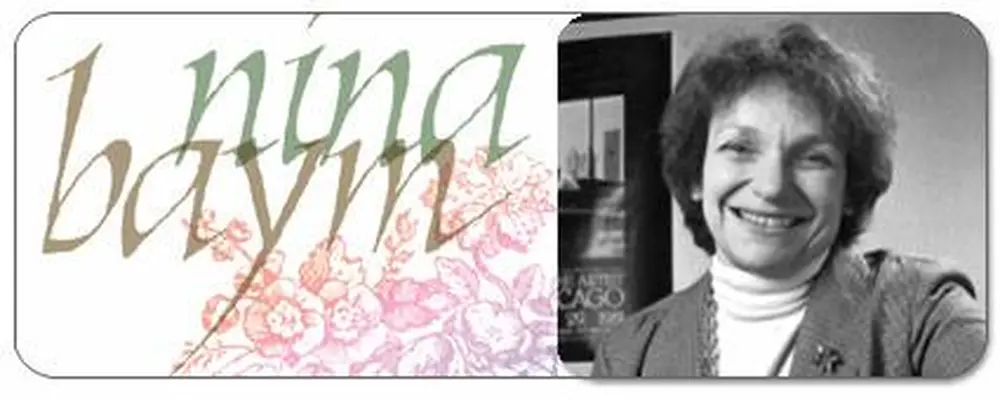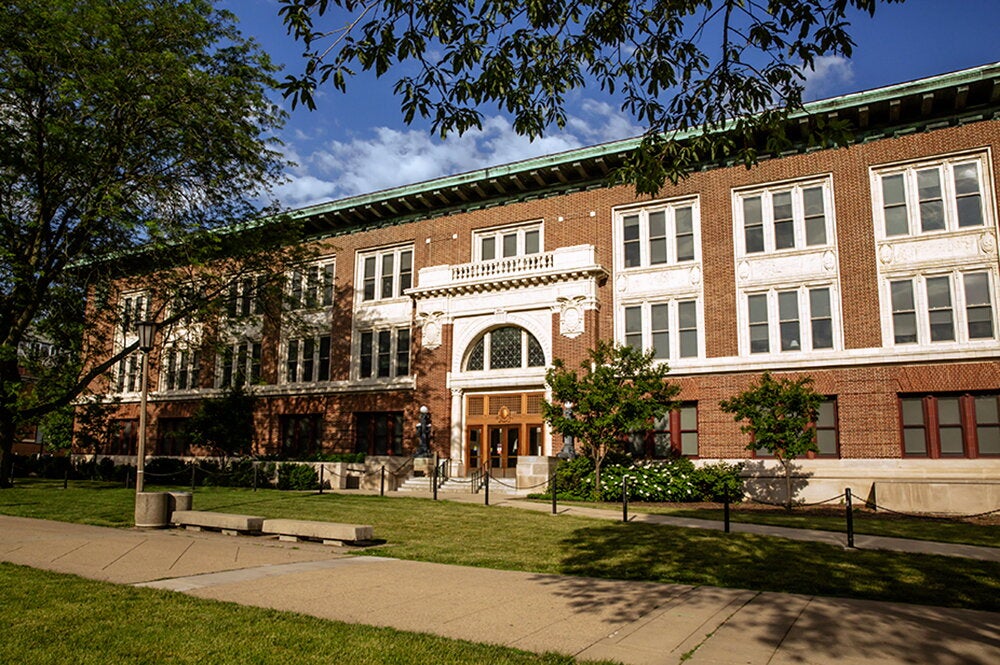
Early in Nina Baym's distinguished career she read a quote by Nathaniel Hawthorne that would guide the arc of her writing and research. The 19th-century Massachusetts novelist known for such classics as The Scarlet Letter and Twice-Told Tales, dismissed fiction by women as trivial while describing female writers as a "damned mob of scribbling women."

Baym, who came to the U of I in 1963 after earning a PhD at Harvard University, and who retired in June of 2004 from LAS's Department of English, eventually had the last laugh. Baym has written more than 60 articles, 130 reviews on American authors, and seven academic books. She has also edited seven academic books, including the most widely used college anthology in the field of American literature, the Norton Anthology of American Literature.
Awards include a National Endowment for the Humanities and Guggenheim Foundation fellowships, and the prestigious Jay Hubbell Medal for Lifetime Achievement in Advancing American Literature Study. From 1976 to 1987, Baym was the director of the U of I School of Humanities. Upon retirement she held the triple titles of Jubilee Professor of Liberal Arts & Sciences, and Swanlund Endowed Chair, and Center For Advanced Study Professor.
But it was Hawthorne's ungenerous jab at women that led to some of Baym's most impressive and recognized "scribblings." While never dismissing Hawthorne, she began to re-read his novels through the lens of a woman. In her 2000 acceptance speech for the Hubbell Medal, Baym said, "Re-reading The Scarlet Letter as a woman-centered novel opened the door, indeed, to a Hawthorne one did not know. Following the breadcrumb trail through the forest; or, zigging and zagging from one item on this scavenger hunt to the next, I found myself asking how other works by Hawthorne might read if interpreted from a woman-centered perspective; next, what one might make of Hawthorne's career if the dominant theological approach were jettisoned."
The revelation is that Hawthorne's work was about women, whereas critics of the time (and not only critics of Hawthorne) simply couldn't imagine that an important male writer would be writing about women at all.
The result of Baym's critical inquiry was the book The Shape of Hawthorne's Career. In her next book, Women's Fiction, Baym expanded her research to "questions of women characters in fiction by other canonical American authors; to women characters in fiction by American women; then, to American women novelists more generally." Prior to Baym, literature experts primarily stuck to evaluating how women writers portrayed men and vice versa. Nina Baym examined the whole genre of so-called sentimental writing in America by women. Whether or not the literature was "great" was immaterial to her. It showed women making their way in the world, which was revolutionary.
One colleague said that Baym's work "spurred a feminist revision of the way we write literary history." changing "why we read, what we read, and how we read."
"The best literary critics, the really special literary critics, add to the ways that we interpret texts," says LAS English professor Bob Parker. "Nina Baym did that, and she did it a great deal, and she did it brilliantly, rereading American literature through a perspective that took women's concerns and women's writing into account at a time when women's concerns and writing were simply not on the scholarly map. Once in a long while there also comes along a critic who dramatically changes which works of literature we interpret, and Baym did that as well, teaching us that there were entire realms of literature that had simply been forgotten because of modern critics' inability to imagine the value of women's writing.
"In short, Baym enlarged the writing we refer to when we say "American literature," and she changed how we interpret American literature. It takes a rare critic to do one of those things. Only a defining critic for a generation can do both of them."
Indeed, she has been a tireless advocate of the importance of women writers in literary history. One reason for that advocacy is the advice her mother gave her. "She instilled in me forever the conviction that a woman had to be able to support herself and, if need, be, her family."
In her ground-breaking article, "Melodramas of Beset Manhood: How Theories of American Fiction Excluded Women," Baym wrote passionately about the reasons for "the critical invisibility of the many active women authors in America." In that same paper she wrote that, "A culture is not a flow, nor even a confluence; the form of its existence is struggle or at least debate; it is nothing if not a dialectic."
"Nina Baym is a masterful teacher at every level," says U of I dean of the Graduate School Dick Wheeler. "She has attracted many excellent graduate students to the University of Illinois to study American literature with her; her graduate seminars have been among those most sought after in the department since she began teaching them; and the mentoring she has provided her many doctoral advisees has had powerful and life-long effects on their literary scholarship."
When Baym was awarded the Hubbell Medal, the award committee wrote that "whether in collections such as Feminism and American Literary History: Essays (1992) or in her many editorial capacities, Professor Baym has introduced a generation of new readers to forgotten or neglected writers of the past while at the same time forcing us to see well-known writers and works from surprising perspectives."
Baym played a major role reshaping the literary canon into a more inclusive collection, one that better reflects the diversity of America.
"Looking back on what is now a lifetime's work," Baym says, "I see a career of opportunity rather than design: all I wanted to begin with was a secure job teaching in a good college."


